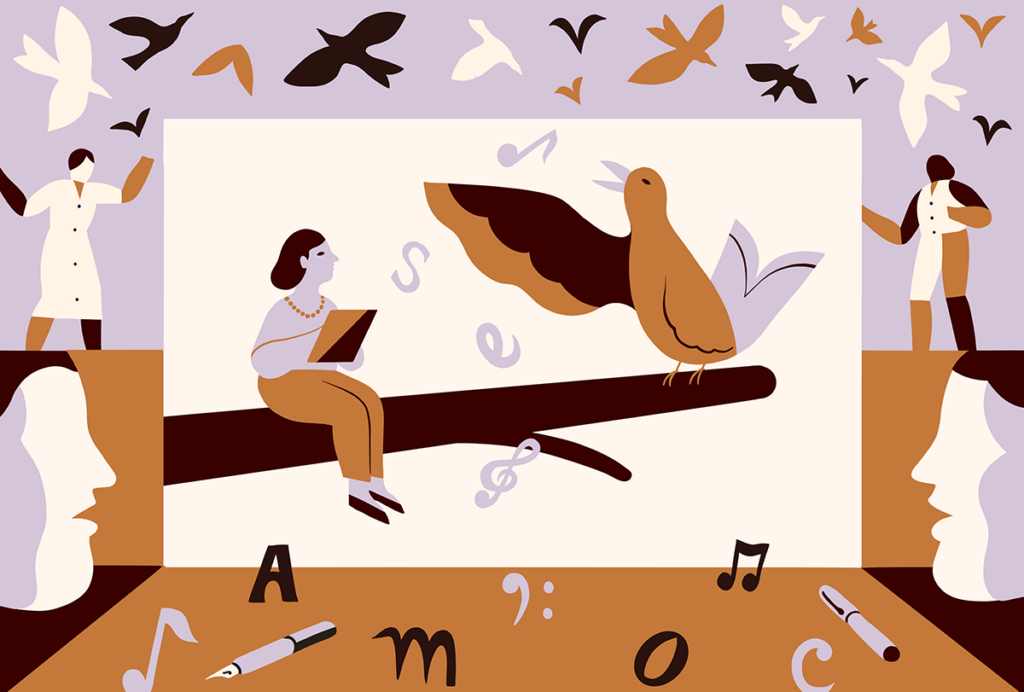Stephanie Palmer is associate professor of organismal biology and anatomy and of physics at the University of Chicago. Her research focuses on questions at the interface of neuroscience and statistical physics, exploring how the visual system processes incoming information to make fast and accurate predictions about the future positions of moving objects in the environment.
She is part of the leadership teams for two new major efforts in Chicago at the interface of biology, physics and mathematics: The National Science Foundation Physics Frontier Center for Living Systems at the University of Chicago and the NSF-Simons Institute for Theory and Mathematics in Biology.
Palmer has been teaching chemistry, physics, math and biology to a wide range of students since her undergraduate years at Michigan State University. At the University of Chicago, she founded the Brains! Program, which brings local middle-school students and science teachers from the South Side of Chicago to her lab to learn hands-on neuroscience.
Palmer has a Ph.D. in theoretical physics from Oxford University, where she was a Rhodes Scholar. She was named an Alfred P. Sloan Foundation Fellow in 2015, and she was granted a CAREER award from the National Science Foundation in 2017.




